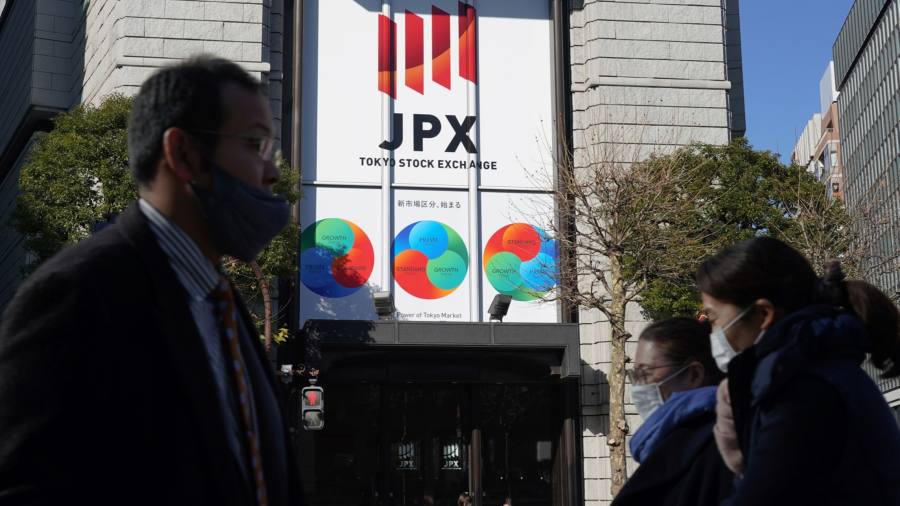Inflation is propelling Japan into a new era that could boost stocks by spurring more households to move savings out of low-yielding bank deposits, the head of the country’s stock exchange operator said.
Hiromi Yamaji, president of JPX Group, which controls exchanges in Tokyo and Osaka, said he did not expect many Japanese to be sitting on so much cash anymore — households in the country have amassed 10 billion yen ($7 trillion) in bank savings — and turned to the stock market for better returns in response to the rising cost of living.
“They can feel that inflation is coming . . . cash is king in deflation. But if inflation is coming, they have to be ready,” Sanji said in an interview.
Yamaji, who became head of JPX this year, said exchange-traded funds were probably the first way many people got into stocks, and he is working to make the stock market more attractive to individual investors long considered too risky.
Many Japanese have been deeply skeptical of owning stocks since the country’s economic bubble burst more than three decades ago, and years of stagnant prices mean households may overlook the fact that bank deposits offer little return.
“They didn’t care about it, even though it didn’t yield anything,” Sanji said. “But once the inflation kicks in . . . they have to be prepared to hedge against inflation, and obviously deposits don’t give you a good enough hedge return.”
Japan’s core measure of consumer inflation excluding fresh food and energy rose more than 4% in April for the first time in nearly 42 years.
With prices generally rising, markets expect new Bank of Japan Governor Kazuo Ueda to gradually shift toward unwinding decades of ultra-loose monetary policy.
Meanwhile, Japanese stocks have returned to levels not seen in 33 years. The Topix index has risen 14.5 percent this year, which investors say is in part due to JPX’s efforts under Yamaji to push companies to improve capital efficiency and boost corporate value.
However, the increase was largely driven by foreign funds, while domestic Japanese investors – especially retail investors – were more cautious.
As the generation that lost money in the 1980s bubble ages, attitudes toward investing in stocks will change in Japan, Sanji said.
“There was a generation that had a really bad experience of the bubble popping, but that was 35 years ago, and fewer people had that bad experience,” he said, while a younger generation of investors was less cautious about the future. More savings shifted to risky assets.
Since 2014, some 17 million Japanese have opened tax-sheltered investment products called Nisa. Since then, the stock market has risen about 50%, leaving a younger generation of investors sitting on large unrealized gains, Yamaji said.
Starting next year, the government will significantly expand the investment scheme, allowing investors to buy up to 3.6 million yen a year in stocks using Nisa accounts, and fueling expectations of an accelerated shift from cash savings to equity investments.


